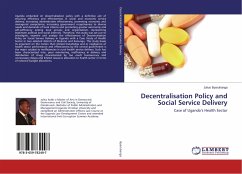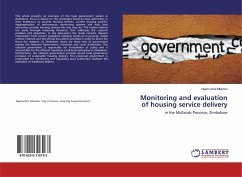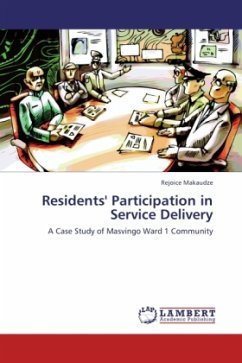
Decentralisation Policy and Social Service Delivery
Case of Uganda's Health Sector
Versandkostenfrei!
Versandfertig in 6-10 Tagen
41,99 €
inkl. MwSt.

PAYBACK Punkte
21 °P sammeln!
Uganda embarked on decentralization policy with a definitive aim of ensuring efficiency and effectiveness in social and economic service delivery, increasing administrative effectiveness; promoting economic and managerial competence; increasing government receptiveness to diverse needs and demands of local citizens and promoting greater autonomy and self-sufficiency among local groups and organizations representing legitimate political and social interests. Therefore, this study was set out to investigate, examine and analyze the effectiveness of Decentralisation Policy on Social Service Deliv...
Uganda embarked on decentralization policy with a definitive aim of ensuring efficiency and effectiveness in social and economic service delivery, increasing administrative effectiveness; promoting economic and managerial competence; increasing government receptiveness to diverse needs and demands of local citizens and promoting greater autonomy and self-sufficiency among local groups and organizations representing legitimate political and social interests. Therefore, this study was set out to investigate, examine and analyze the effectiveness of Decentralisation Policy on Social Service Delivery in Uganda with a Case Study of Health Sector in two selected districts of Mukono and Kanungu. This study bases its argument on the notion that; limited knowledge and or negligence of health sector performance and effectiveness by the central government is the major catalyst to inefficiencies in rural health service delivery. Such has been characterized into; poor monitoring, inefficiencyin delivery and distribution of drugs characterized by too much bureaucracy and unnecessary delays and limited resource allocation to health sector in terms of national budget allocations.












